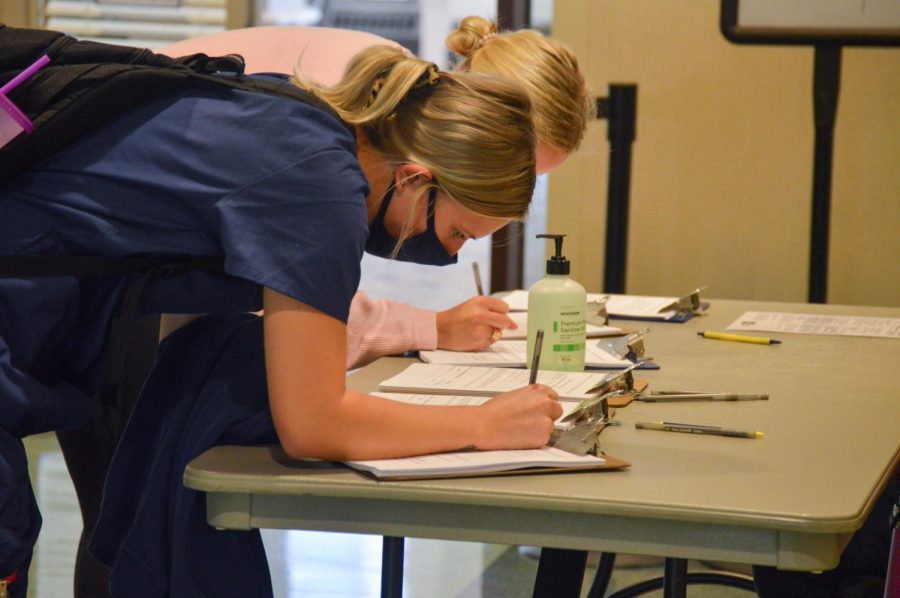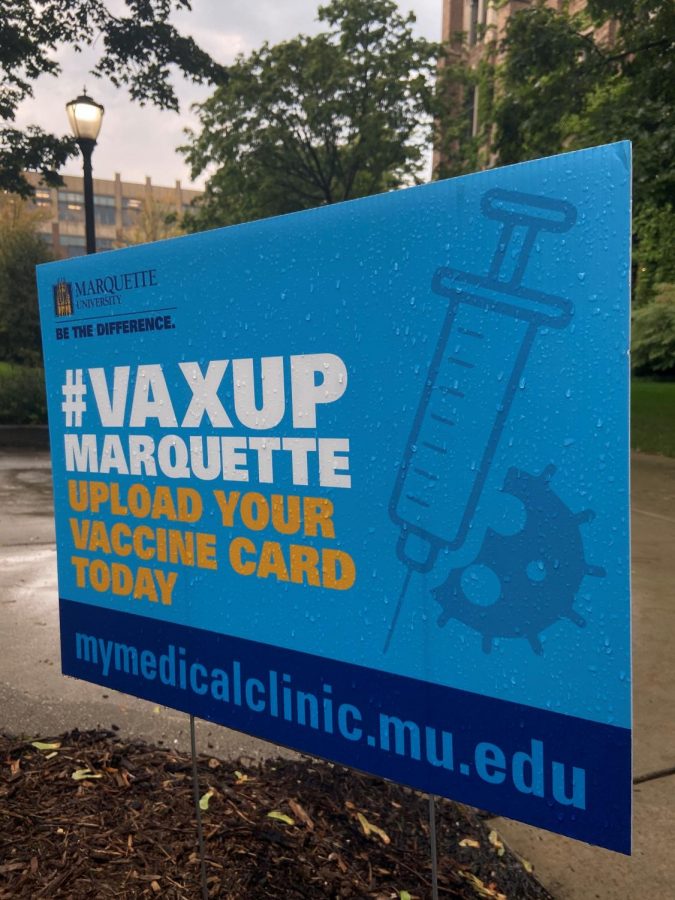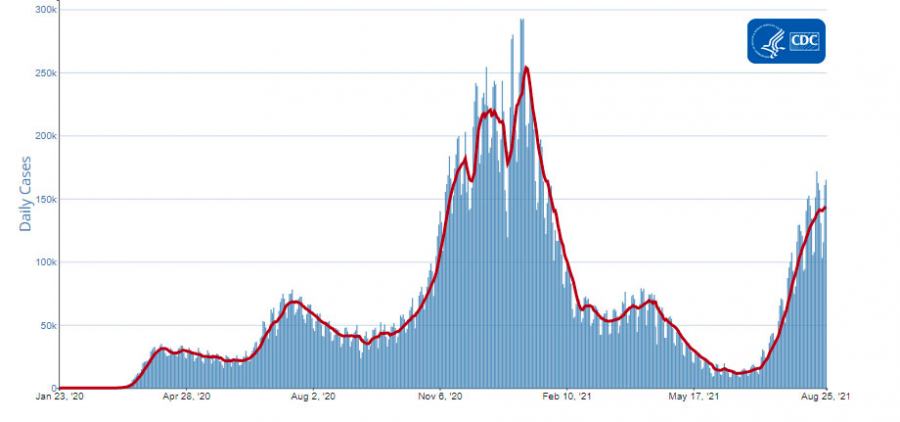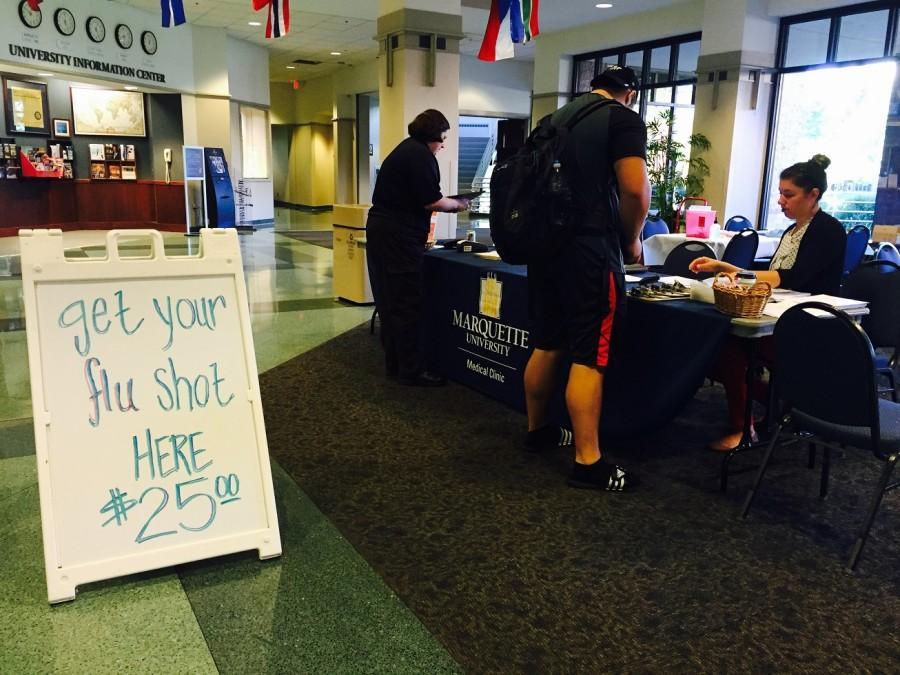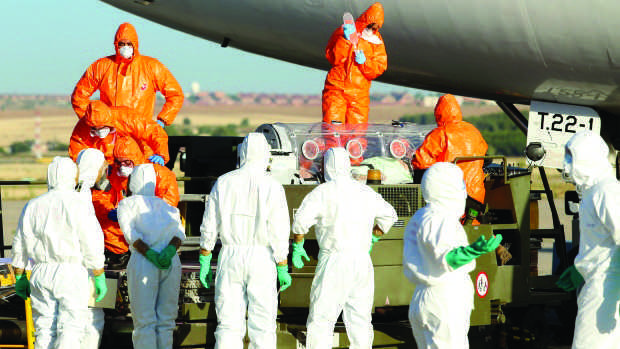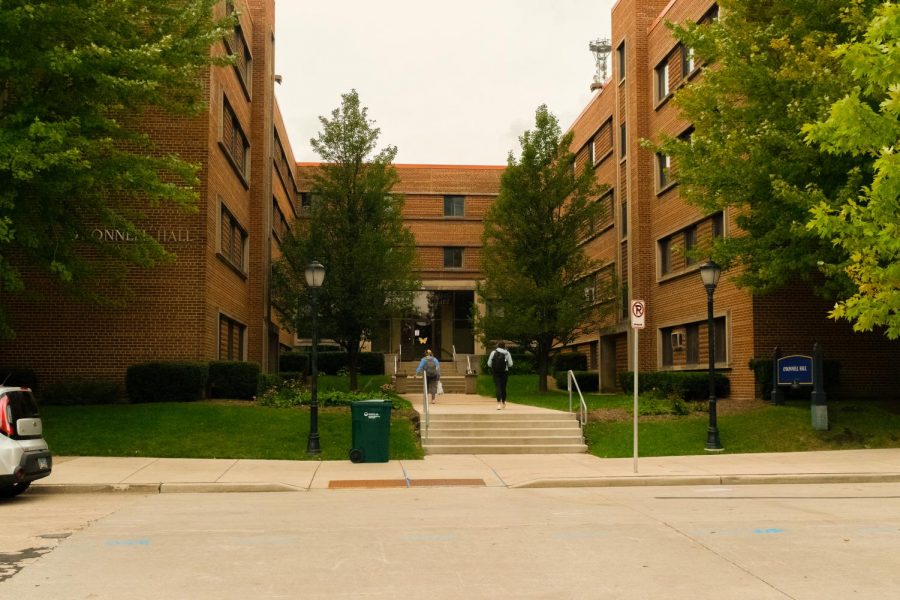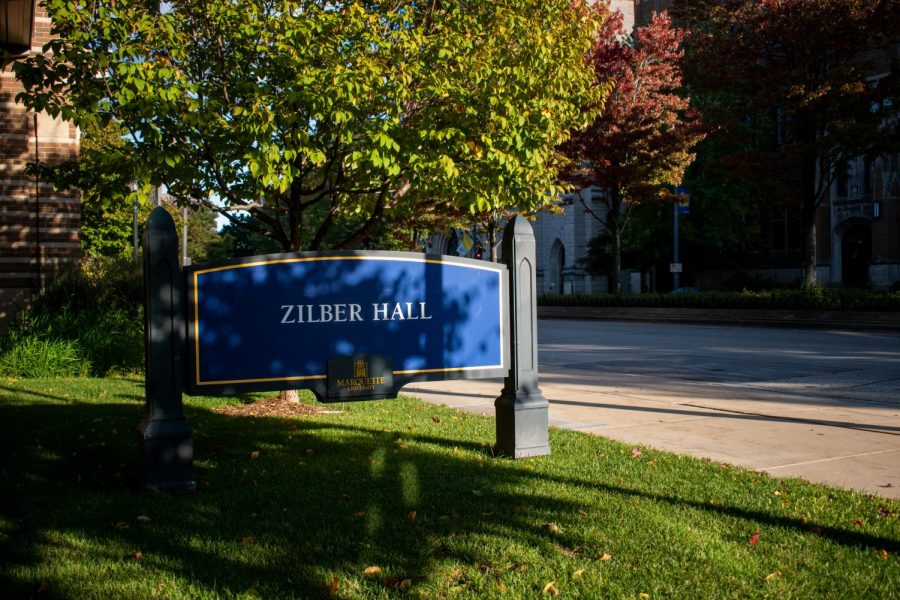
Two critical violations were found when City of Milwaukee Health Inspectors audited Marquette dining halls in September 2012.
Cobeen Hall and Straz Hall were both cited with critical violations, which were fixed while the inspector was onsite, according to reports from the City of Milwaukee.
At Straz Hall, the hot holding cabinet was set at 110 degrees, rather than the required 135, and the left refrigerated prep table was holding items at 46 degrees, though it is required to be at or below 41 degrees, according to the report.
At Cobeen Hall, the cheese and hummus were between the temperatures of 42 and 44 degrees, while they are required to be below 41 degrees. In the grill area, a pan of sour cream, which is also required to be below 41 degrees, was measured at 51, according to the report.
Kevin Gilligan, the general manager of Sodexo at Marquette, oversees all dining hall operations. He is also an integral part of making sure Marquette passes these inspections.
Gilligan said since the initial violations were both related to temperature, Sodexo threw the food away. Upon reinspection two weeks later, he said, both locations passed the audit with zero violations.
“The Milwaukee Health Department typically inspects each location based on volume of customers,” Gilligan said in an email. “We usually get inspected twice annually.”
Gilligan said Sodexo also anually hires a third-party auditor from the National Safety Foundation to conduct another inspection that is stricter than those of the city. To pass that inspection, the halls need to earn a compliance rating of 92.5 percent or higher.
“We do this to hold ourselves to a higher standard of food safety,” Gilligan said. “When compared to the other restaurants in our neighborhood, I think you will find our record to be far better.”
Of every five inspections the health inspectors perform, one finds a critical violation, said Angela Hagy, division director of Consumer and Environmental Health with the City of Milwaukee.
Hagy said a critical violation is determined by the Centers for Disease Control. The five categories are improper holding temperatures, poor personal hygiene of food handlers, unsafe food sources, inadequate cooking and contaminated equipment, according to the CDC’s website.
“In the last report, the things they were written up for were temperature-related,” Hagy said. “To have a single violation does not mean they failed the inspection. We just like to make sure that their devices and foods are in range.”
Gilligan said Sodexo rarely has a violation, since its standards are set so high.
“Sodexo at Marquette has a near-perfect record when it comes to food safety,” Gilligan said. “Of course we strive for zero violations. However, when they happen, we deal with them accordingly. Many restaurants fear the health inspector; we embrace the health department and even invite them to address our managers and staff.”
Hagy said the purpose of the inspections is just to get a sense of how the food is being prepared, and to see if safe-service practices are consistently used.
“The health inspection basically makes sure we are upholding all local, city, county and state laws as it pertains to the safe serving of food,” Gilligan said. “Since our standards are a step above what the county requires, we very rarely have a violation, and it usually pertains to a minor error.”



